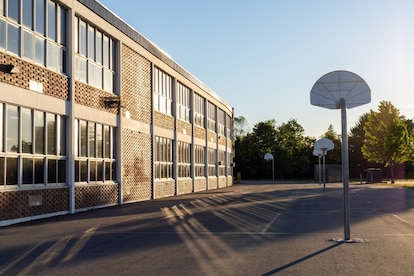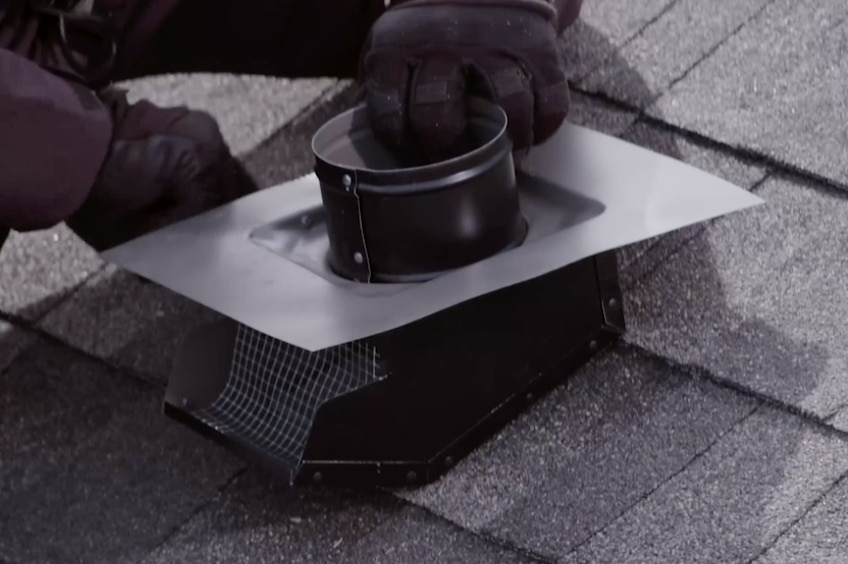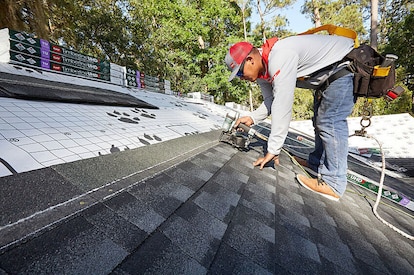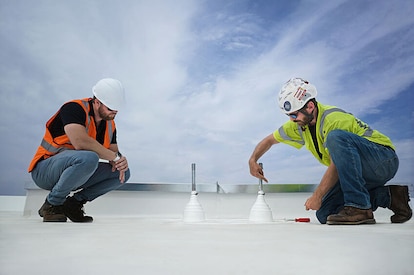
Commercial Roofing
Branching Out into Commercial Roof Maintenance for Schools
Commercial roof maintenance programs are a great way to expand your business and build long-term relationships with school facility managers. You may already be offering commercial roof maintenance services, or perhaps you're interested in branching out. Providing roof maintenance to K-12 schools and universities can be a good source of reliable, ongoing work. But you'll need to consider these facilities' nuances.Schools' Current Roof Maintenance ChallengesIn an educational environment, students' safety and comfort come first. Buildings must be secure and functional, and they must provide an atmosphere conducive to learning. Creating this environment starts with the roof, but this can easily be put off or forgotten about as many school facility managers focus on day-to-day maintenance issues. If students and teachers complain about a lack of hot water or classroom temperatures that are too hot or cold, facility managers swiftly address these issues.However, facility managers should prioritize regular roof maintenance in addition to addressing the most immediate facility concerns. Even something like a small leak from deferred roof maintenance can lead to much larger, and more costly repairs, creating headaches for everyone involved, that could have been avoided.The Value of Commercial Roof Maintenance ProgramsThe roof protects everything inside the school—from books and computers to shop equipment and musical instruments. If a roof leaks, many items could suffer damage. At the end of the day, ensuring a quality roof through regular maintenance not only protects everything inside the building, it can also help extend the life of the roof. Moreover, some roofing system manufacturers may require regular roof inspections to maintain warranties or guarantees. A roof maintenance program can meet this requirement, providing inspection records and evidence that any issues were addressed.How to Develop a Maintenance Program for SchoolsA commercial roof maintenance program for schools isn't much different from what you already do for other commercial buildings. And while regular maintenance inspections can be completed anytime, a neglected roof can often end up requiring repairs that need to align with the school's calendar to plan for minimal disruptions to the students. This can cause inconvenient delays, or date changes that could be avoided with regular inspections and maintenance.GAF Senior Product Manager Benjamin Runyan says that it's important to identify the manufacturer of the existing roofing system to ensure you are using compatible products that won't void the warranty or guarantee. "You want to be looking at this from a maintenance standpoint," says Runyan. "What does the roof look like? How was it built? How have they been maintaining it?"To start, Runyan recommends that you inspect the entire roof system and document its condition with photos and notes. Pay particular attention to the more vulnerable areas, such as seams, fasteners, flashings, edge metal, drains, and gutters. Look for cracks, missing roofing materials, evidence of ponding water, or of birds or other animals, and signs of moss or algae. An infrared scan of the roof can determine if any moisture is present and help pinpoint areas that need immediate attention.Your program should include basic tasks such as clearing debris from drains and gutters, removing leaves or branches, and making minor repairs where existing sealants are losing pliability or are showing signs of deterioration. If you identify larger concerns, you can document that with photos and provide an estimate for the repairs. Also, note how long the repairs should take and what products you'll use.Getting Started with SchoolsPreventative maintenance programs aren't just a benefit to the schools, they can also lead to other school roofing work including re-roofing opportunities. If you're ready to add school commercial maintenance programs to your business plan, GAF has the resources you need to get started. Runyan explains, "Your first step should be talking with your GAF Territory Manager as they will likely already have established relationships with school districts, colleges, roof consultants and architects in your service area."From commercial roofing system specifications to WellRoof® Guarantee Extensions, plus roof restoration options, GAF meets all your needs for stepping into the world of educational buildings.
By Authors Karen L Edwards
March 06, 2024



